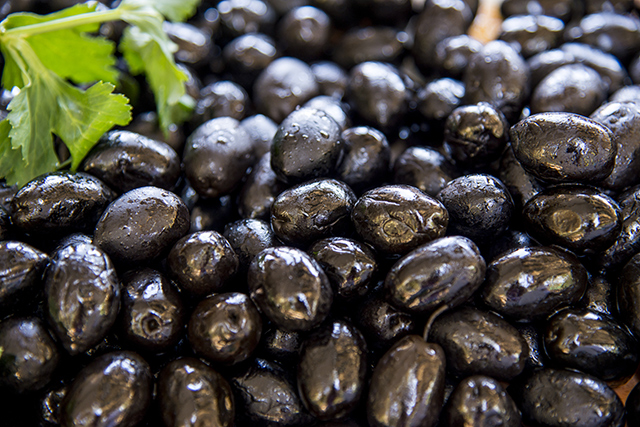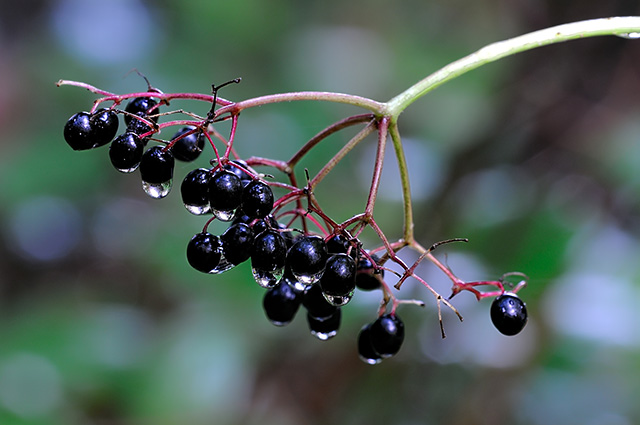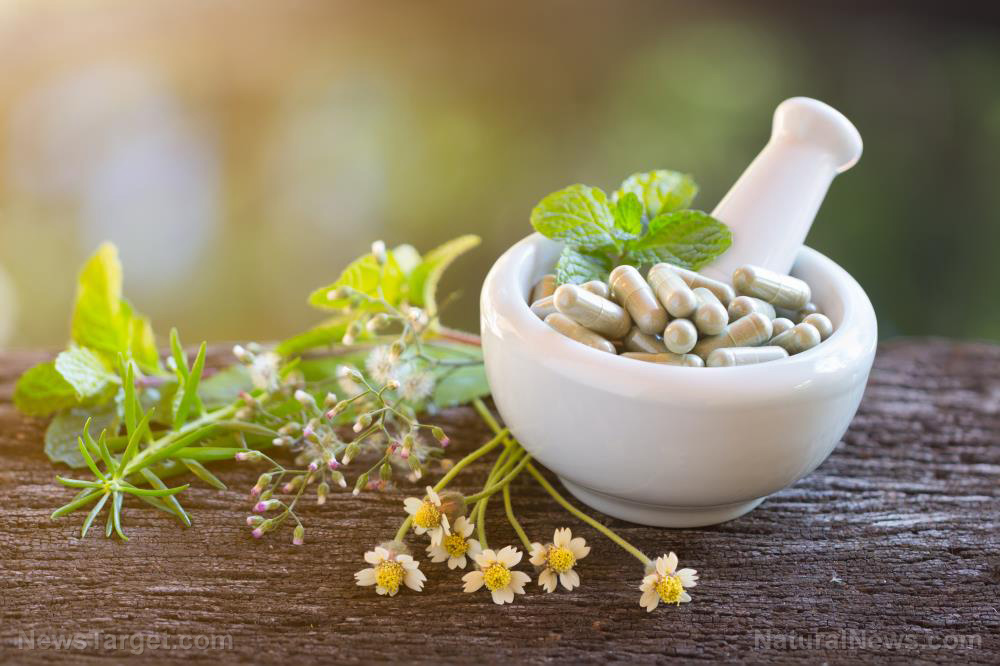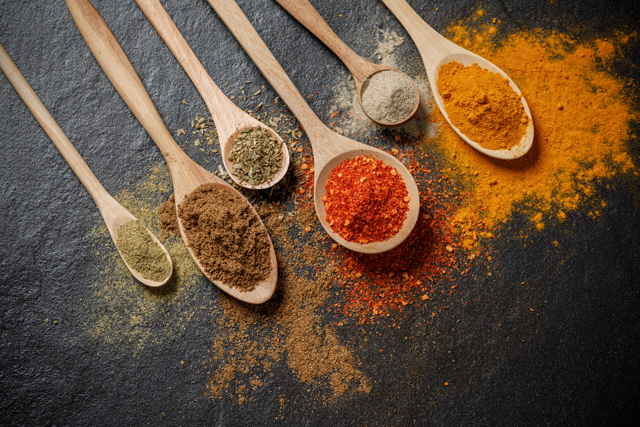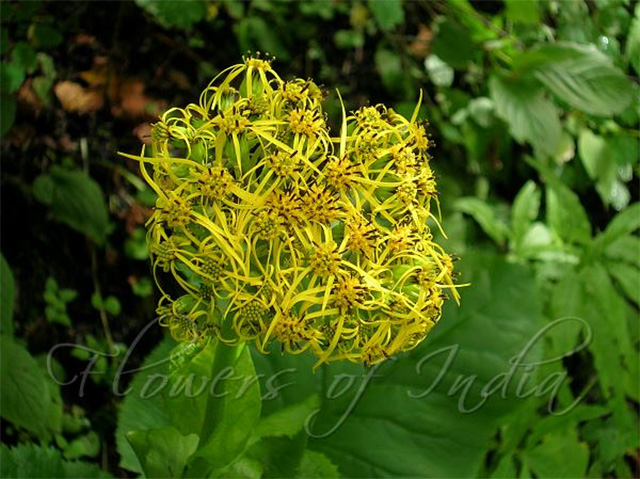Lemon balm is excellent survival medicine: Review of its medicinal properties and how to use it
08/10/2019 / By Zoey Sky

Lemon balm (Melissa officinalis) is a medicinal herb that belongs to the mint family. It has many health benefits, and it can be used to treat fevers or make soothing lemon balm tea. (h/t to TheOrganicPrepper.com)
Despite what Big Pharma would have you believe, prescription drugs have been shown to worsen the health conditions that they were supposed to treat, as well as cause other negative side effects. Consider switching to herbs like lemon balm, which has been traditionally used as a natural, effective alternative medicine with little to no adverse effects.
The medicinal properties of lemon balm
Lemon balm leaves are used to make teas, tinctures, and essential oils that can treat common complaints. Detailed below are some of the health benefits of this lemon-scented herb.
It reduces anxiety.
Lemon balm can be used to address symptoms of anxiety, like excitability and nervousness.
In a 2014 study published in the journal Nutrients, researchers analyzed the mood and cognitive effects of foods containing lemon balm. The researchers combined the supplement with a beverage and yogurt together with either natural or artificial sweeteners.
Volunteers from both groups reported positive effects on various aspects of mood like reduced levels of anxiety.
To relieve anxiety, take 300-600 milligrams (mg) of lemon balm thrice a day. Take a higher dose during acute episodes of anxiety.
It relieves stress.
Lemon balm boosts your mood, promotes relaxation, and soothes symptoms of stress.
In a 2004 study published in the journal Psychosomatic Medicine, researchers discovered that taking lemon balm relieved the negative mood effects of laboratory-induced psychological stress. The volunteers who took lemon balm reported that they felt “an increased sense of calmness and reduced feelings of alertness.”
To relieve stress, take 300 mg of lemon balm capsule twice a day. During acute episodes of stress, you can take a single dose of 600 mg.
It relieves insomnia and other sleep disorders.
Combining lemon balm with valerian helps relieve restlessness and sleep disorders like insomnia.
In a 2006 study published in the journal Phytomedicine, scientists found that children who were given a combined dose of lemon balm and valerian “experienced a 70 to 80 percent improvement in symptoms.”
If you are suffering from insomnia or other sleep disorders, drink a cup of lemon balm and valerian tea before bed.
It treats colds, fever, and flu.
Lemon balm is a diaphoretic, meaning it induces perspiration. The herb is also a natural antiviral. Use lemon balm to naturally induce sweating and break a fever.
To reduce a fever or treat a cold or the flu, give the patient a cup of lemon balm tea. Cover the patient with blankets or let them wear warm clothes to help them sweat.
To make lemon balm tea, get a fresh sprig of the herb and chop the leaves to release their oils then set them aside. Alternatively, you can use a teaspoon of dried leaves. Add the leaves to one cup of hot water. Let the tea steep for 10 minutes. You can add a teaspoon of raw honey, then mix the tea before drinking.
How to grow lemon balm
Lemon balm is an easy-to-grow hardy perennial. Take note that lemon balm planted in a garden will spread easily.
Follow the steps below to grow lemon balm at home.
- Place lemon balm seeds in a pot with soilless seeding medium for six to eight weeks before transplanting outdoors. Make sure the seeds aren’t fully covered by the soilless medium.
- Keep the seeding medium slightly moist, but not wet.
- Leave the pot outdoors. To grow more lemon balm, use a larger pot so the herb can spread.
Lemon balm can grow from 24 to 48 inches tall. The plant will tolerate full sun or partial shade. You can put it in a pot if you don’t want it to grow wildly in your garden.
Sources include:
Tagged Under: alternative medicine, anxiety relief, botanicals, Colds, emergency medicine, fever, Flu, green living, herbal medicine, Herbs, home gardening, home remedies, homesteading, how to, Lemon Balm, lemon balm tea, medicinal plants, Melissa officinalis, natural antibiotics, natural cures, natural medicine, off grid, prepper, prepping, prevention, remedies, survival, survival medicine
RECENT NEWS & ARTICLES
COPYRIGHT © 2017 NATURALANTIBIOTICS.NEWS
All content posted on this site is protected under Free Speech. NaturalAntibiotics.news is not responsible for content written by contributing authors. The information on this site is provided for educational and entertainment purposes only. It is not intended as a substitute for professional advice of any kind. NaturalAntibiotics.news assumes no responsibility for the use or misuse of this material. All trademarks, registered trademarks and service marks mentioned on this site are the property of their respective owners.



